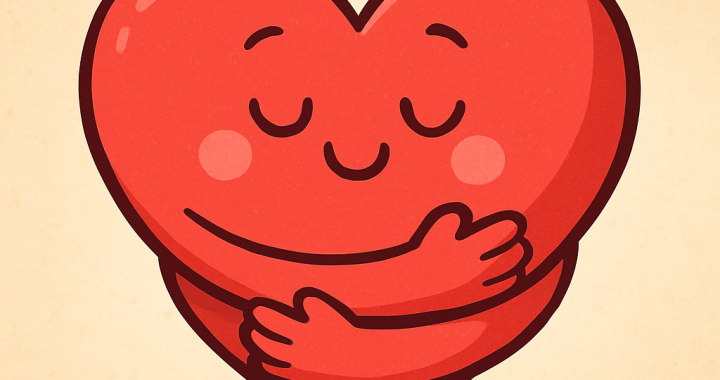Pastoral Ponderings—Did you Hug?
I had a visit with my dad a couple nights ago. It was a nice visit, except that it was one in which his–and my—imperfections and anger were showing. It made me feel like a kid again, back in some less-than-ideal time with him. Yet nonetheless, in the midst of it, he asked a profound question—“Did you hug?” It was profound in that the intent was not just to suggest to “hug and make up,” to bring reconciliation, but to recognize through a hug, an abiding care and shared humanity despite hurts and differences.
Even in his less good times, he often shared deep wisdom, as was the case here. This conversation a couple nights ago, though, was even more remarkable in that he died more than ten years ago. While this did come in a dream, it was not a memory as one might think, nor had he ever pointed to this facet of wisdom in his more lively days. Now some of you who have lost loved ones can certainly relate to having this kind of living conversation with one long gone, but it still makes me wonder about what’s going on here.
Our world is full of arguments and disagreements, as it ever has been. There’s probably a lost, longer version of that memorable passage in Matthew 18 where Jesus LIKELY originally included in that discussion about wronging one another, “Wherever 2 or 3 are gathered together, there will be hurt and disagreement, and/but (then the part we remember–) wherever 2 or 3 are gathered together IN MY NAME, there am I in the midst of them.”
Whether among friends, in a church, in a family, in a marriage, in our political world, wherever 2 or 3 are together, there will be hurt and disagreement—true whether or not that lost segment of Matthew 18 is ever found. Might this be true today more than ever?
I’m not so sure about that. But regardless of the context, my dad’s wise and insightful question still applies—“did you hug?” Disagreements and hurt are a part of the human condition. They only become demonic when we dehumanize and vilify the Other. When we remember we’re all imperfect, broken, and nobody has a corner on the market of God’s perspective, when we realized that compromise is a gift rather than an evil, then we can recognize Jesus’ peace among us.
“Did you hug?”- if even in a figurative sense, when you can’t hug a group! It might not fix everything—but it could make all the difference in the world! Thanks, Dad. See you soon– Pastor Jim


